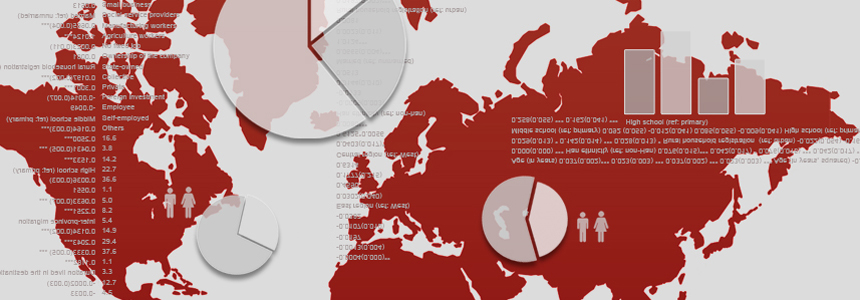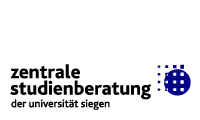Zentrale Studienberatung
im F-S Gebäude
Sandstraße 16-18
57072 Siegen
Erreichbarkeit der
studentischen Hotline:
0271 740-2712
Mo - Do: 9 - 16 Uhr
Fr: 9 - 12 Uhr
Mail:
info.studienberatung[at]
zsb.uni-siegen.de
Terminvereinbarung für eine Beratung über:
0271 740-2712
International Students
You find information about the admission procedure here:
STARTING
Impressum
Social Sciences

Short Information
| Restricted
admission |
Regular
study time |
Winter
semester |
Summer
semester |
|---|---|---|---|
| no | 4 semester/
8 semester (part time) |
✔ | ✔ |
Admission procedure
Application required
You can apply here
Degree
Master of Arts
More information
Language of instruction
German and English
Deadlines
The degree program
Based on subjects of political sciences and sociology, the
Master's degree program offers an interdisciplinary
postgraduate education. The focus is on theories, subjects and
methods of internationally and interculturally comparative
political science and sociology. Students experience directly
which research issues are currently dealt with in social
sciences and with which methods they try to answer the
questions. They are able to be integrated into the current,
also international, research projects of the scientists in
Siegen.
Attending to conferences or summer schools can be part of the
curriculum – students can develop their personal qualification
profile in the qualifying module and have it recognised
for their studies.
The target of the degree program is teaching theoretical
qualifications, interdisciplinary knowledge and reinforced
technical competences that permit graduates to implement and
solve political, social and cultural problems in scientific
issues that can be methodically processed, as well as to work
in areas that demand professional handling of data and results
from empirical social research or execution of empirical
examinations.
In the methodical area, great value is put on teaching
empirical research competences; students can specialise in
quantitative or qualitative methods.
Graduates of the degree program are qualified for professional specialist-sciences know-how. This opens up diverse professional perspectives for them. Possible areas of activity are: International organizations, publishing houses, agencies and media of international and intercultural communication, elements and principles and other private-law organizations, research and consultancy agencies under private law, parties, associations, development aid organizations and non-governmental organizations, public administration with the special tasks of analysis and planning of social and cultural structures or public service, education and further education, science and research.
Can be studied as...
The Master's degree program in Social Sciences can be studied as a single-major Master's degree program (Model A) and as a major course subject or a minor course (Model B). Further information can be found on the website of the Faculty of Arts and Humanities.
Admission requirements
- B.A.-degree in Social Sciences, Political Science or Sociology, or a degree in equivalent courses of study with at least grade "good" (2.5; according to the European Credit Transfer System).
- In any case, proof of subject-specific knowledge of political science, sociology or social sciences of at least 45 CP in the major course subject or 18 CP in the minor course subject is required. Proof of knowledge of the methods of empirical social research and/or social science theories is required.
Study organization
Subject examination regulations including study plans and module descriptions
The Framework Examination Regulations (RPO-M) and the general subject-specific regulations of the subject examination regulations (PHIL-FPO-M) define the general regulations of studying in Siegen and at the Faculty of Arts and Humanities.
In addition, the subject examination regulations of the individual (partial) degree programs (FPOs) define the basic structures of a (partial) degree program (e.g. admission requirements and content to be studied). The examination regulations are accompanied by curricula, which represent the recommended exemplary course of study in the individual subjects, as well as module descriptions (content-related information on modules).
Students are automatically subject to the current version of an FPO when they enroll for their first semester.


